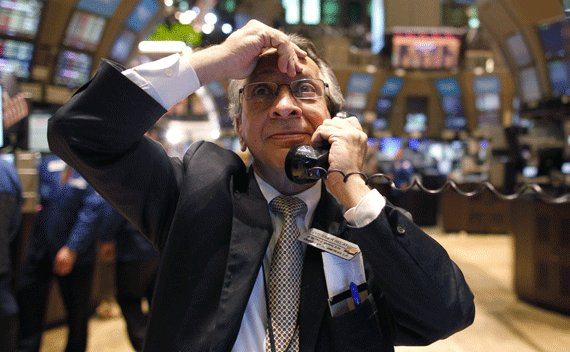The World Next Week: Will the Debt Debate Roil the Markets?
More on:

The World Next Week podcast is up. Matt Pottinger sat in for Bob McMahon. Matt and I talked about the upcoming debt ceiling debate; next week’s GOP presidential debate in South Carolina; Monday’s parliamentary elections in Canada; and China’s effort to prohibit smoking indoors.
[audio: http://www.cfr.org/content/publications/media/podcast/2011/20110428_TWN…]
The highlights:
- Everyone agrees that Congress will eventually vote to increase the ceiling on the national debt. It has to. That doesn’t mean, however, that passage will come easily or quickly. Democrats and Republicans will use the debt vote as leverage to push their version of fiscal reform. The markets are anticipating a lot of political theater, and as result, they haven’t become excited over the prospect that the U.S. might default on its debt. The $64,000 question is how long that calm will prevail. If the markets conclude that the United States is getting too close to default—or that Washington is incapable of devising a strategy to stop its gushing red ink—things could turn ugly quickly.
- The first GOP presidential debate, which will be broadcast nationwide by the Fox News Channel, is scheduled for next Thursday, May 5. The question is who is going to show up. To qualify for the debate, prospective candidates must have filed paperwork with the Federal Election Commission to set up a presidential exploratory committee and have averaged at least one percent support in five national public opinion polls. Sarah Palin, Mike Huckabee Michele Bachmann, and Donald Trump are the potential nominees generating the most water cooler talk, but none of them meet the first criterion. Mitt Romney meets both criteria, but he hasn’t said whether he will show up in Greenville, South Carolina for the debate. Herman Cain, Tim Pawlenty, Ron Paul, Buddy Roemer, and Rick Santorum have all announced presidential exploratory committees, but they all haven’t filed the necessary paperwork. With the front-runners as likely no-shows, the debate probably won’t attract many viewers or much non-Fox media attention.
- While Campaign 2012 gets underway here in the United States, Canadians go to the polls on Monday, May 2. It will be Canada’s fourth national election in the past seven years. The election was mandated after Michael Ignatieff, the leader of the Liberal Party, engineered a no-confidence vote against the minority government led by the Conservative Party’s Stephen Harper. The economy is a big issue in Canada, as it is here in the United States. Ignatieff is in hot water for saying during his long time residing in the United States that America was his country.
- China is set to institute new rules prohibiting indoor smoking. We will see how this goes over with the Chinese people, of whom at least a third smoke. (There are more smokers in China than there are people in the United States.) We’ll see if China’s netizens rise up in complaint.
Matt and I aren’t the only commentators discussing these issues. The Atlantic reports on the market implications of the debt ceiling debate, and the Washington Post covers the Treasury Department’s contingency planning should the political impasse drag on. The Los Angeles Times runs through the criteria to qualify for the debate and Slate discusses the possibility that Fox News will cancel its upcoming GOP presidential debate in South Carolina due to a lack of eligible contenders. Reuters evaluates the likelihood and implications of possible outcomes of Canada’s May 2 election, and the Wall Street Journal discusses the unexpected rise of the New Democratic Party as a significant player in the electoral contest. The New York Times reports on China’s new smoking ban and Forbes’s “China Tracker” wonders how far the ban will reach.
More on:
 Online Store
Online Store